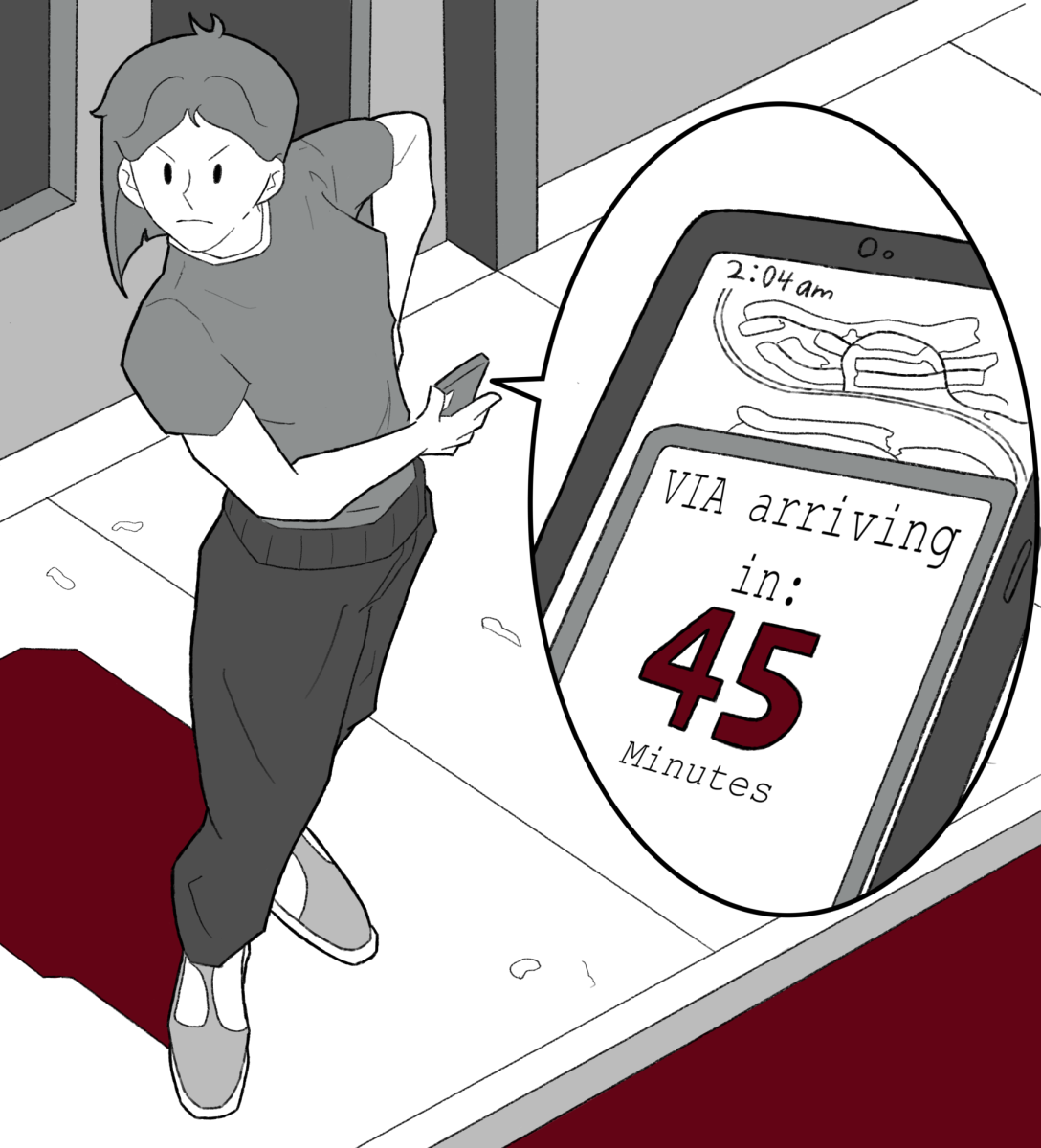Ironically, it took me six months away from campus to truly fall in love with UChicago. I considered transferring, but after an excellent study abroad experience, I reconsidered. While I understand that for some, UChicago might not be the right place, I’d encourage those with doubts to try studying abroad.
I ended my first year socially anxious, academically uncertain, and indifferent to UChicago. Throughout the school year, I doubted my decision to come here. I considered transferring but struggled to take the leap. Ultimately, I decided to study abroad in order to get some distance from campus, reconsider what I wanted, and make a new plan. I was admitted to two programs, the summer European Civilization in Paris program and the autumn British Literature and Culture in London program, both of which I accepted. I chose to go on both programs as I was really interested in pursuing an English major and fulfilling my civilization Core requirement. Having committed to spending both the summer and fall quarters away from campus, I worried about losing friends and any sense of identity with the College. Ultimately, however, I found that this decision gave me both the space and social experiences I needed to discover that I do feel at home in UChicago’s community and academics.
I started my time abroad with the summer European Civilization program in Paris. Over the nine-week program, I was immersed in Paris, spending mornings at the UChicago Center learning about the Renaissance and the Enlightenment and afternoons exploring the city. I was joined by 24 other students in my cohort, another Civ cohort of 25, a small advanced French group, and five students studying neuroscience. Weeks were divided between class days spent poring over 18th-century texts and weekend trips around Europe and within France. After this program, I attended the autumn British Literature and Culture program in London. Having spent the summer with around 75 UChicago students, I found myself startled at the intimacy of my nine-person London cohort. However, as we spent our initial days on Charles Dickens walking tours of London and afternoons continuing classroom discussions in our shared apartment, I began to appreciate the intimacy of such a small group.
Studying abroad marks a stark contrast to UChicago’s typical theoretical style of education, as its education comes not just from theoretical readings in the classroom, but also first-hand day-to-day experiences in a foreign country. At UChicago, I studied French troubadour poetry in the space of my Poetry and the Human class. In France, we discussed the origin of these poems in the very medieval palaces where they were first composed. In Hyde Park, I studied Romantic literature in Harper Library, relying on my imagination to create images of bucolic English fields and towering estate houses. In London, however, I went with my cohort on weekly excursions out into the English countryside, where we discussed literary works in the very environment of their conception. I no longer felt like a distant observer of Coleridge and Wordsworth’s Lyrical Ballads, but rather, a participant in the verse.
Beyond academics, studying abroad allowed me to engage more meaningfully with my peers by creating a space for me to forge new friendships and learn how to reach out to others. At UChicago, I found myself feeling more alone than ever in massive lectures, making only a few friends through classes. However, during study abroad, my London and Paris cohort members became my roommates, travel companions, and close friends. Our class discussions escaped the classroom, joining us on meanders around London and trips to Ireland. While the smallness of a study abroad cohort could seem oppressive, I marveled at how in my cohort, exciting conversations were never in short supply. Moreover, studying abroad allowed me to create close relationships with my professors more organically; I didn’t feel the need to constantly attend office hours or schedule meetings with my professors outside of class as they were with us every day of the program, inside the classroom and out. Some invited us into their homes, even having us over for dinner. Other professors recounted their experiences in academia on long bus rides to excursions. Furthermore, the bonds formed in my study abroad programs transformed into intense relationships that have continued on campus. In December, I went with a group of people in my Paris Civ cohort to a cohort member’s ballet performance to cheer her on. While it may sound clichéd, I found that experiencing another country with a small group of people definitely bonds you together. By providing a small environment for me to not only forge close friendships but also learn to lean into discomfort, study abroad made me more confident in my ability to reach out to others and make new friends.
Coming from first year having spent most of my time with people from similar backgrounds and life interests, meeting classmates from a variety of callings and stories while abroad alleviated a lot of my social anxiety. I was exposed to a new slice of the University, befriending classmates with a larger range of interests and personalities than I normally would. Knowing the brevity of the 10-week program, I found myself more inclined to be myself in these groups as the social impressions I made would have short-term consequences. Spending classes, travels, and excursions with a small group of people I didn’t know allowed me to learn how to feel comfortable reaching out to people. In a way, not knowing anyone in the group ahead of time allowed me to feel more comfortable reaching out, and the 10-week timeline of the program reminded me to just be myself in the short span of the program. Moreover, the small size of my cohort allowed me to see that classmates who I thought were intimidating were actually approachable and sweet. I spent the first week of my time in London in intimidated awe of my fourth-year roommate, but through getting to know her and reaching out, she became one of my closest friends.
Studying abroad also enabled me to find my place with my friends back on campus. Through FaceTime, letters, and constant messages, I found myself rekindling friendships that I had overlooked while on campus. A friend I hadn’t spoken to in months messaged me on Thanksgiving, eager to hear about my first Thanksgiving overseas and expressed her excitement for my return. When my on-campus friendships were no longer based on easy lunch and dinner dates, I found myself more earnestly engaged with many friends back home.
While I still do not know exactly what I want to study and am just one of thousands of students trekking across the quad, I find myself excited to be present at UChicago. I not only feel like I belong, but I am excited to reach out to people in forging new relationships and friendships. Since coming back to campus, I’ve found myself eagerly greeting people on the quad, sharing long conversations with old, nearly forgotten classmates and eager to befriend those I do not know. I feel better able to meet unfamiliar faces in classes and RSOs and reach out. I am excited to be back.
I understand that for some people, UChicago is not the right place and transferring is an excellent option. Moreover, I do not believe that you need to globe-trot to reconnect with UChicago. Many of the experiences I’ve had are ones that can be found on campus. From joining a small RSO to trying a 12-person seminar, there are many places to experience one of UChicago’s welcoming and diverse microcosms.
Brinda Rao is a second-year in the College.








